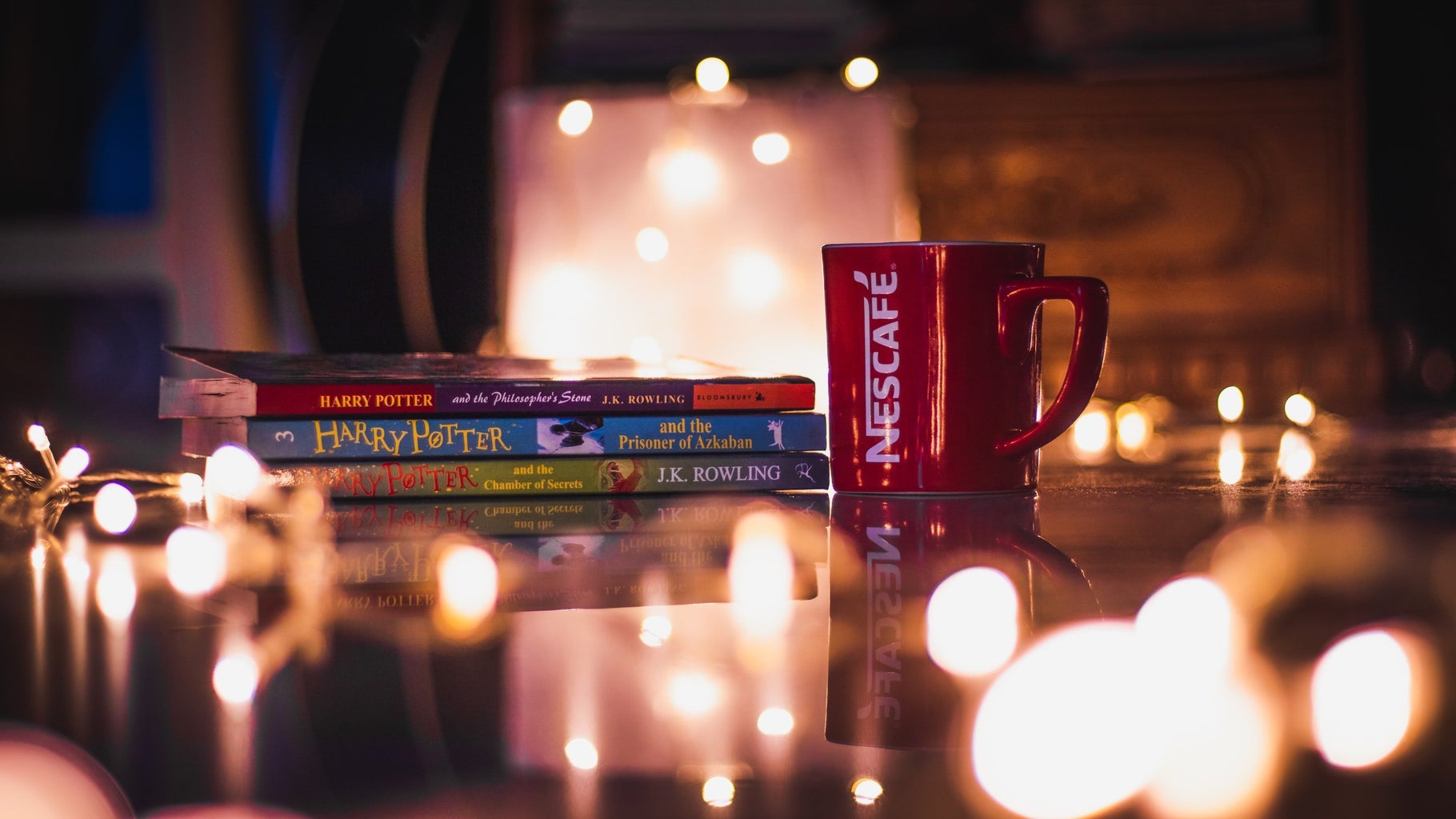It was summer when I decided to go back in time. My days held little promise except for long hours drenched in sunlight. I was bored. In times of great boredom, I turn to my trusted companion: my overstuffed bookshelf. There, tattered and dust ridden with neglect was my copy of Harry Potter and the Sorcerer’s Stone. I hadn’t opened it since my elementary school days when my parents would read them to me before bed. I decided that this would be the perfect opportunity to revisit it. As soon as I flipped to the first page, I was transported back to those simple nights. I could hear my mom’s voice and feel my princess-themed duvet pulled around me. I was back in Hogwarts, but I was also back in my childhood.
I spent that summer rereading the Harry Potter series from beginning to end. After I was done with all seven books, I turned my attention to the Hunger Games series. They filled me with nostalgia for playing in the backyard, chasing my friends with an imaginary bow and arrow. I found the same comfort in rereading Little Women and The Secret Garden. I was a little girl again reading on the floor in the library. Every book I came back to, left me with a sense of ease and joy. The books that defined my childhood holds a special place in my heart. All of them were mini, two-hundred-page time capsules.
This experience is in accord with recent research. A study published in the Journal of Consumer Research by Cristel Antonia Russell and Sidney J. Levy looks at the tendency to return to familiar media for enjoyment. The study terms this phenomenon as “repeated hedonic experiences.” While habitual or addictive behavior does not involve free will, hedonic behavior shows agency. People actively reread or rewatch something to bring back the feeling of first experiencing it. When an old book or favorite song is revisited, it reignites the same peace or excitement from before. In the final conclusion, Russell and Levy write that “recomsumption is a petition, a way of actively seeking, a way of asking something from the past, a way of becoming rather than returning.”
With the new Hunger Games film adaptation coming out and the latest additions to the Harry Potter cinematic universe, I have been thinking about how people capitalize on nostalgia. While producers will attach a franchise name to a movie, it will never be quite the same as the original version. Capturing that feeling is like trying to paint a dream. You can come close, but it’s never a perfect replication. The books, movies, and items we treasured in childhood will always hold a magic that can not be mass-produced. The childhood classics I return to will always have the unique ability to bring out my inner child. Harry Potter, Hunger Games, The Secret Garden, and Little Women are the kind of stories I can relive over and over again. In times of stress or hardship, that is often the best medicine.



